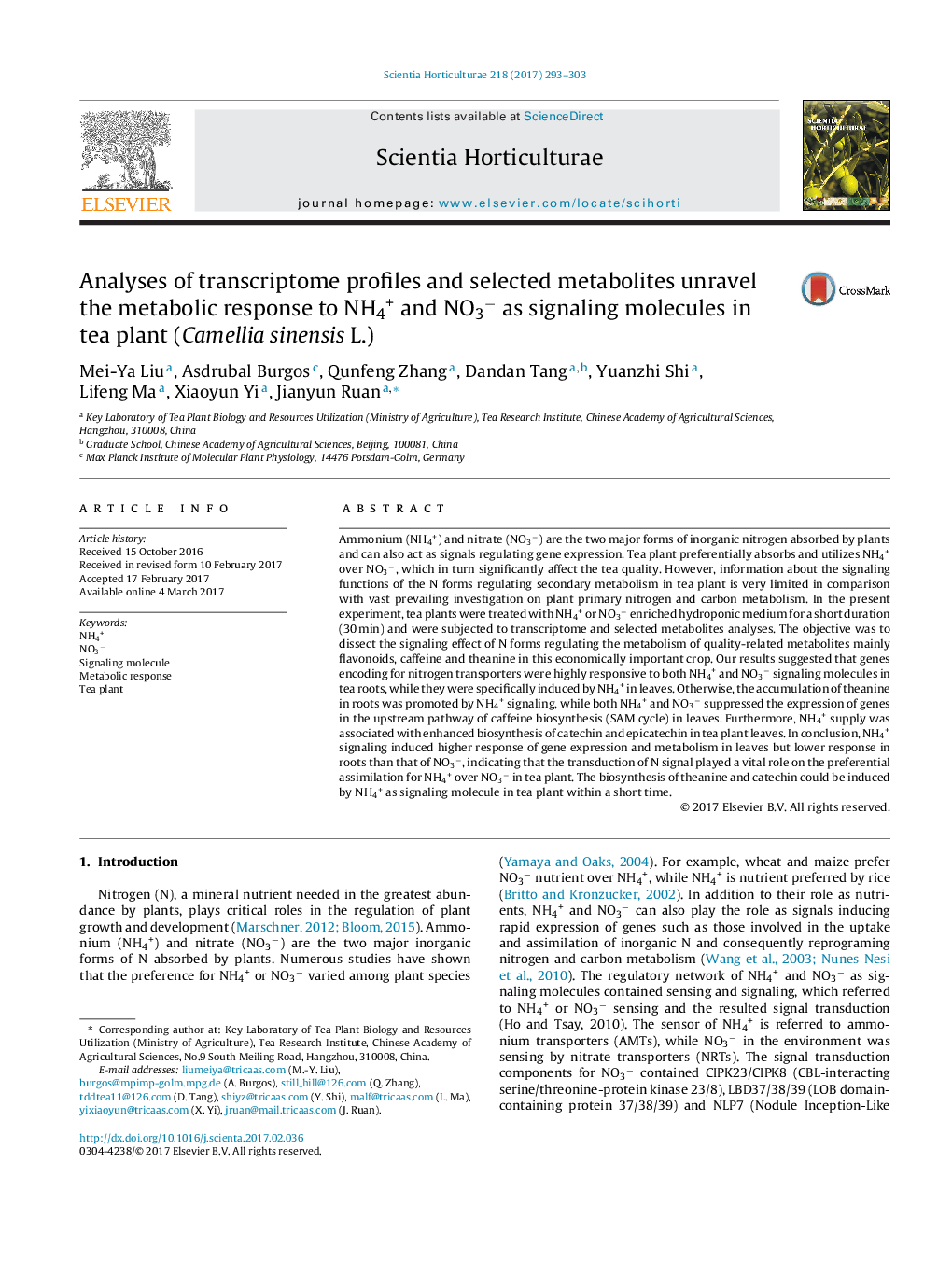| کد مقاله | کد نشریه | سال انتشار | مقاله انگلیسی | نسخه تمام متن |
|---|---|---|---|---|
| 5769556 | 1628780 | 2017 | 11 صفحه PDF | دانلود رایگان |

- Both NH4+ and NO3â could act as signals regulating the metabolism in tea leaves.
- N transporters were specifically induced by NH4+ signaling in tea plant leaves.
- The accumulation of theanine in roots was promoted by NH4+ as signaling molecule.
- NH4+ supply was associated with enhanced biosynthesis of catechin in tea leaves.
Ammonium (NH4+) and nitrate (NO3â) are the two major forms of inorganic nitrogen absorbed by plants and can also act as signals regulating gene expression. Tea plant preferentially absorbs and utilizes NH4+ over NO3â, which in turn significantly affect the tea quality. However, information about the signaling functions of the N forms regulating secondary metabolism in tea plant is very limited in comparison with vast prevailing investigation on plant primary nitrogen and carbon metabolism. In the present experiment, tea plants were treated with NH4+ or NO3â enriched hydroponic medium for a short duration (30Â min) and were subjected to transcriptome and selected metabolites analyses. The objective was to dissect the signaling effect of N forms regulating the metabolism of quality-related metabolites mainly flavonoids, caffeine and theanine in this economically important crop. Our results suggested that genes encoding for nitrogen transporters were highly responsive to both NH4+ and NO3â signaling molecules in tea roots, while they were specifically induced by NH4+ in leaves. Otherwise, the accumulation of theanine in roots was promoted by NH4+ signaling, while both NH4+ and NO3â suppressed the expression of genes in the upstream pathway of caffeine biosynthesis (SAM cycle) in leaves. Furthermore, NH4+ supply was associated with enhanced biosynthesis of catechin and epicatechin in tea plant leaves. In conclusion, NH4+ signaling induced higher response of gene expression and metabolism in leaves but lower response in roots than that of NO3â, indicating that the transduction of N signal played a vital role on the preferential assimilation for NH4+ over NO3â in tea plant. The biosynthesis of theanine and catechin could be induced by NH4+ as signaling molecule in tea plant within a short time.
Journal: Scientia Horticulturae - Volume 218, 14 April 2017, Pages 293-303